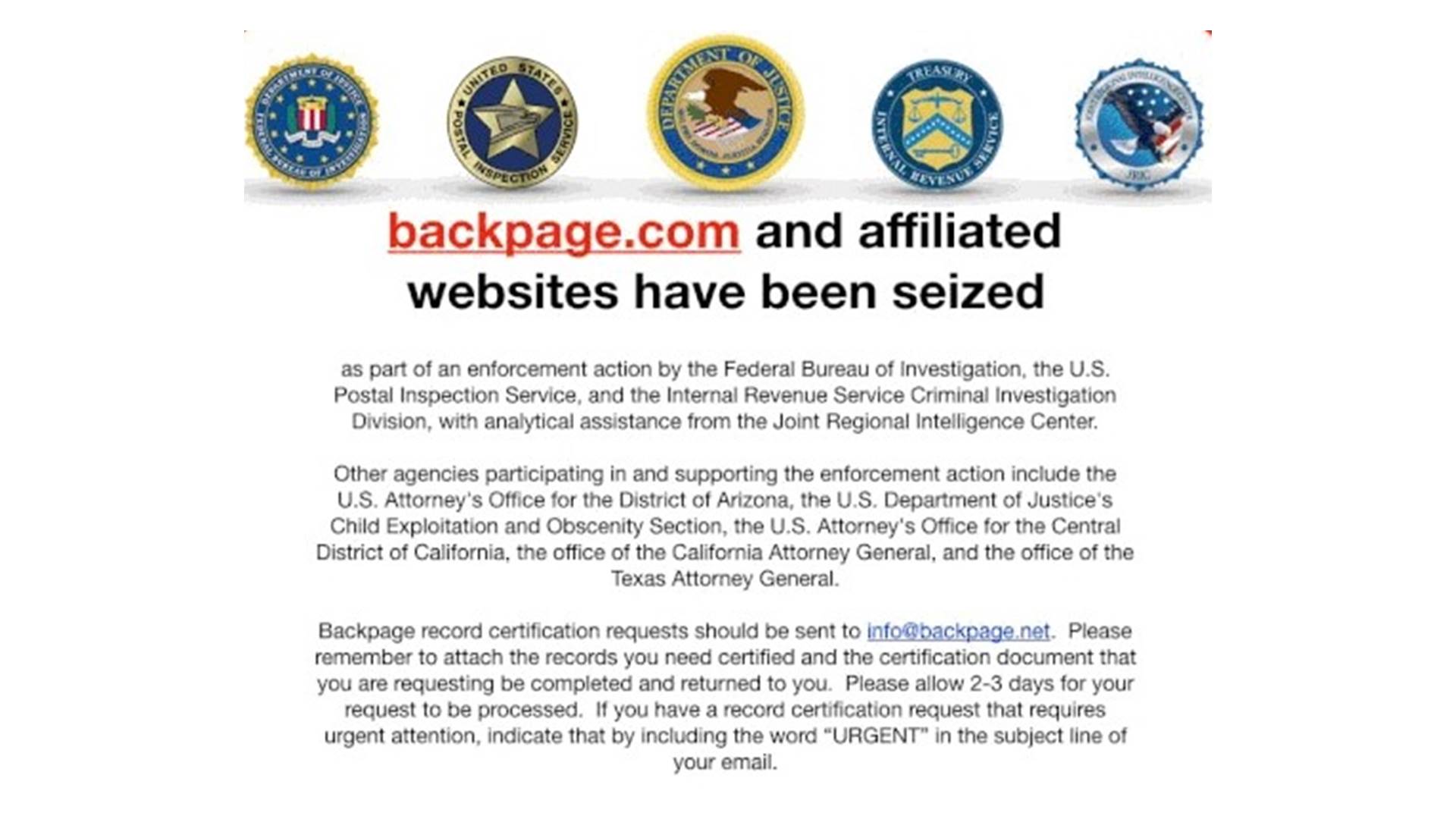The online sex trafficking industry has become more fragmented since the passage of a new federal sex trafficking law and the seizure of online sex trafficking marketplace backpage.com in 2018

According to a report released last Monday by the U.S. Government Accountability Office.
The GAO report, which started in May 2020, reviews the online commercial sex market from 2014 through 2020, examining the US Department of Justice’s enforcement efforts against online sex trafficking and the extent to which federal criminal cases have been brought against traffickers under the Allow States and Victims to Fight Online Sex Trafficking Act of 2017 (FOSTA).
Investigators highlighted two events in April of 2018 that have disrupted traffickers’ business online.
First, federal authorities seized backpage.com, a classified ads site akin to Craigslist, which had been the largest online marketplace for commercial sex. And second, Congress passed the FOSTA–SESTA package, which established criminal penalties for people promoting prostitution and sex trafficking through operating or owning online platforms.
A market for commercial sex has proliferated on the Internet. The GAO’s interviews with Department of Justice officials found that “nearly all federal cases brought against sex traffickers involve an online dimension, whether that be the recruitment of victims, advertisements to solicit buyers, reviews of providers, or communications among parties involved.”
In 2019, defendants used the internet as their primary means of soliciting buyers in 84 percent of federal sex trafficking cases and recruited 37 percent of their sex trafficking victims online.
Most online advertisements for commercial sex are posted on easily accessed sites most people can visit, as opposed to the dark web, the report said. That might be because the success of commercial online sex markets depends on their ability to easily connect buyers and sellers.
Since the passage of FOSTA and the takedown of backpage.com occurred within days of each other, it’s not possible to attribute changes in the market to one event or the other.
Boy Scouts of America: $850m deal agreed over sexual abuse claims
Nevertheless, the report said that these events have led to the “relocation of platforms overseas, fragmentation of the market, and increased use of hobby board and sugar dating platforms.” (Sugar dating refers to sites that connect young women with older clients willing to pay them for their time, which may or may not include sex).
After 2018, managers of online platforms promoting sex trafficking moved their platforms overseas, largely to Europe, to dodge US prosecutors. Since backpage.com was taken offline, no single platform has emerged to dominate the market.
According to the report, FBI officials say there has also been an increase in the use of “hobby board platforms” — that is, sites that allow buyers to review and discuss commercial sex services in discussion forums. The CEO of childsafe.ai, an artificial intelligence platform designed to protect children from online traffickers, told auditors that hobby boards present a way to check the “legitimacy and reputation” of sellers in light of an increase in spam and advertising scams.
Napomena o autorskim pravima: Dozvoljeno preuzimanje sadržaja isključivo uz navođenje linka prema stranici našeg portala sa koje je sadržaj preuzet. Stavovi izraženi u ovom tekstu autorovi su i ne odražavaju nužno uredničku politiku The Balkantimes Press.
Copyright Notice: It is allowed to download the content only by providing a link to the page of our portal from which the content was downloaded. The views expressed in this text are those of the authors and do not necessarily reflect the editorial policies of The Balkantimes Press.
